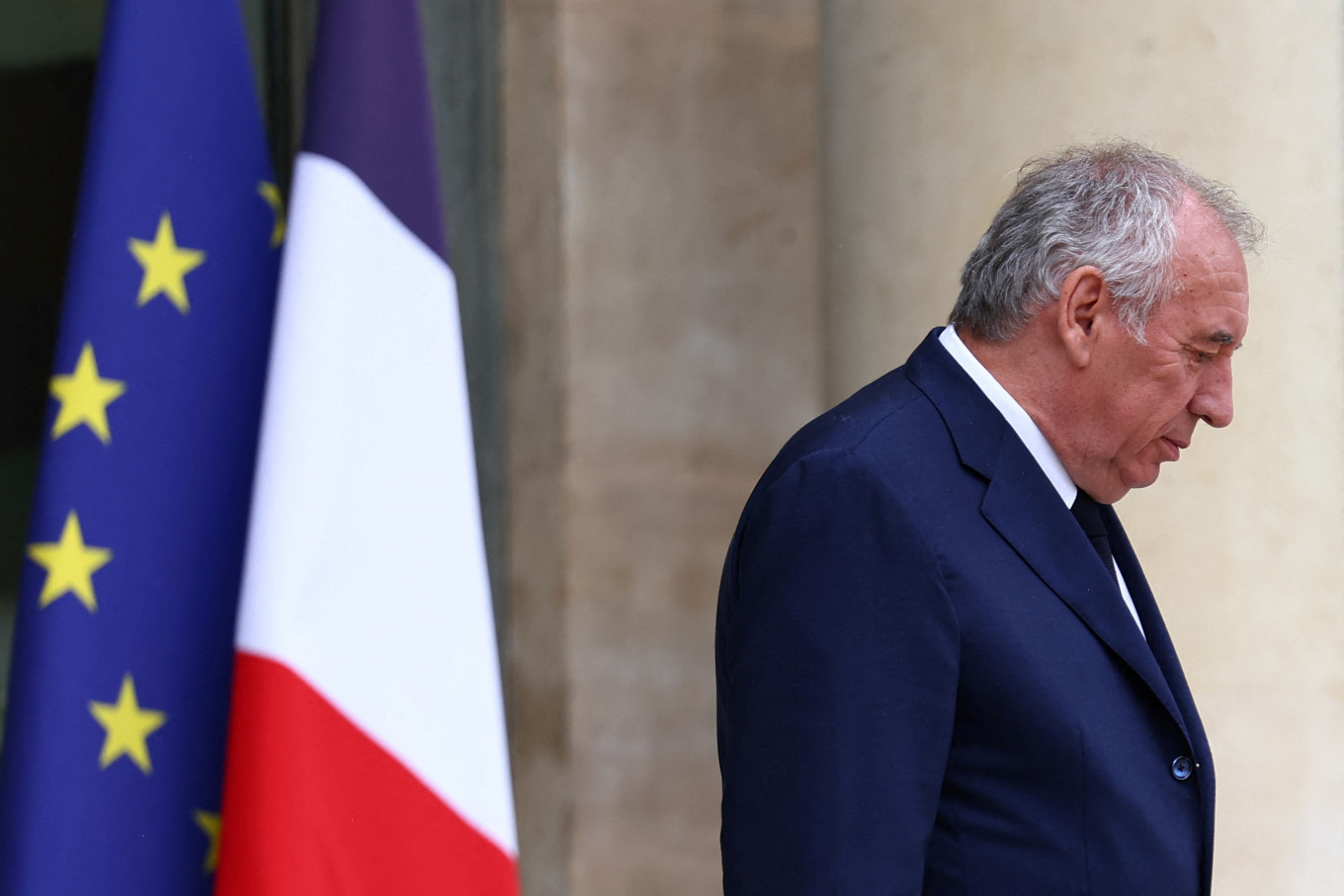Popular Reads
Top Results
Can't find what you're looking for?
View all search resultsPopular Reads
Top Results
Can't find what you're looking for?
View all search resultsFrench PM says EU-US trade deal an act of submission, dark day for Europe
Change text size
Gift Premium Articles
to Anyone
F
rance called a framework trade deal between the United States and European Union a "dark day" for Europe, saying the bloc had caved in to US President Donald Trump with an unbalanced deal that slaps a headline 15 percent tariff on EU goods while sparing US imports from any immediate European retaliation.
The criticism from Prime Minister Francois Bayrou followed months of French calls for EU negotiators to take a tougher stance against Trump by threatening reciprocal measures — a position that contrasted with the more conciliatory approaches of Germany and Italy.
"It is a dark day when an alliance of free peoples, brought together to affirm their common values and to defend their common interests, resigns itself to submission," Bayrou wrote on X of what he called the "von der Leyen-Trump deal".
The high-level French criticism, and President Emmanuel Macron's silence since the deal was signed between Trump and European Commission President Ursula von der Leyen, stood in contrast with the more benign reaction from Berlin and Rome.
French government ministers acknowledged the agreement had some benefits — including exemptions for sectors such as spirits and aerospace — but said it remained fundamentally unbalanced.
"This state of affairs is not satisfactory and cannot be sustained," French European Affairs Minister Benjamin Haddad said on X, urging the EU to activate its so-called anti-coercion instrument, which would allow for non-tariff retaliation.
Trade Minister Laurent Saint-Martin criticised the EU's handling of the negotiations, saying the bloc should not have refrained from hitting back in what he described as a power struggle initiated by Trump.
"Donald Trump only understands force," he told France Inter radio. "It would have been better to respond by showing our capacity to retaliate earlier. And the deal could have probably looked different," he added.
Macron had said that the EU should respond in kind if the United States slapped tariffs on EU goods, and apply equivalent measures on US imports into the bloc, in particular on services, in which the US enjoys a surplus with the EU.
But the softer line advocated by German Chancellor Friedrich Merz and Italian Prime Minister Giorgia Meloni, whose countries are more dependent than France on exports to the US, prevailed.











